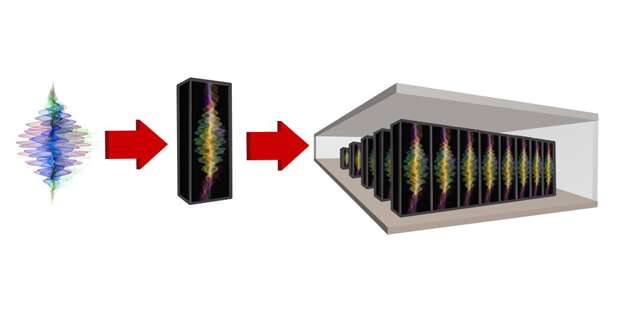DARPA’s Underexplored Systems for Utility-Scale Quantum Computing (US2QC) program is advancing toward creating a prototype for a fault-tolerant quantum computer. The program aims to determine if less-explored commercial approaches can exceed the computational value of their cost. Microsoft Corporation and PsiQuantum have been selected to move to the next phase of the project, which is expected to run until March 2025. Dr. Joe Altepeter, US2QC program manager, expressed excitement about the potential for truly utility-scale systems.
DARPA’s Quantum Computing Program Advances
The Underexplored Systems for Utility-Scale Quantum Computing (US2QC) program, run by the Defense Advanced Research Projects Agency (DARPA), is investigating whether less-explored commercial approaches can progress from current quantum capabilities to a prototype fault-tolerant quantum computer, and eventually a utility-scale quantum computer. The program’s goal is to determine if an underexplored approach to quantum computing can achieve utility-scale operation, where its computational value exceeds its cost, faster than conventional predictions.
In the initial phase of the program, each participating company presented a design concept outlining their plans to create a utility-scale quantum computer. The follow-on phase involves selected performers aiming to take their concepts to the next level. The key goal of US2QC now is to develop and defend a system design for a fault-tolerant prototype, a smaller-scale quantum computer demonstrating that a utility-scale quantum computer can be constructed as designed and operated as intended.
Prototype System Design and Evaluation
The prototype system design will identify all required components and sub-systems and establish their minimum performance requirements. A DARPA-led government test and evaluation team, consisting of technical experts, will evaluate the viability of the design.
Dr. Joe Altepeter, US2QC program manager in DARPA’s Microsystems Technology Office, expressed excitement that multiple performers’ designs showed plausible paths to truly utility-scale systems.
Microsoft and PsiQuantum Selected for Next Phase
DARPA has selected Microsoft Corporation and PsiQuantum to move to the next phase of US2QC, which recently began and is expected to run through March 2025.
Dr. Altepeter praised the researchers for their hard work, presenting solid technology descriptions and detailed research plans. He stated that DARPA will continue exploring with them whether these technologies can make the significant leap needed to create quantum computers with true scientific and industrial utility.
The Future of Quantum Computing
The US2QC program represents a significant step forward in the development of quantum computing. The selection of Microsoft and PsiQuantum for the next phase of the program indicates the potential these companies have in advancing quantum computing technology. The program’s focus on developing a fault-tolerant prototype is a crucial step towards the ultimate goal of a utility-scale quantum computer.
The program’s success could have far-reaching implications for the field of quantum computing, potentially accelerating the development of this technology and its adoption in various industries. The continued exploration of these technologies could lead to significant advancements in quantum computing, providing scientific and industrial utility.
“We are very excited that multiple performers’ designs showed plausible paths to truly utility-scale systems,”
Dr. Joe Altepeter, US2QC program manager in DARPA’s Microsystems Technology Office.
“These researchers are working extraordinarily hard, presenting solid technology descriptions and detailed research plans,” Altepeter said. “We will continue exploring with them whether these technologies can make the significant leap needed to create quantum computers with true scientific and industrial utility.”
Summary
The Underexplored Systems for Utility-Scale Quantum Computing (US2QC) program is investigating whether less conventional methods can expedite the development of a cost-effective, large-scale quantum computer. Microsoft Corporation and PsiQuantum have been selected to progress to the next phase of the program, which aims to develop a prototype demonstrating the feasibility of such a quantum computer.
- The Underexplored Systems for Utility-Scale Quantum Computing (US2QC) program, led by DARPA, is investigating if less-explored commercial methods can progress from current quantum capabilities to a prototype fault-tolerant quantum computer, and eventually to a utility-scale quantum computer.
- The program’s main objective is to develop a system design for a fault-tolerant prototype, a smaller-scale quantum computer that proves a utility-scale quantum computer can be built and operated as planned.
- The prototype system design will identify all necessary components and sub-systems and set their minimum performance requirements. A DARPA-led government test and evaluation team will assess the design’s feasibility.
- Dr. Joe Altepeter, US2QC program manager in DARPA’s Microsystems Technology Office, expressed excitement that multiple designs showed potential paths to truly utility-scale systems.
- Microsoft Corporation and PsiQuantum have been chosen by DARPA to move to the next phase of US2QC, which began recently and is expected to run until March 2025.
- The researchers are working hard, presenting robust technology descriptions and detailed research plans, and will continue to explore whether these technologies can make the significant leap needed to create quantum computers with true scientific and industrial utility.


